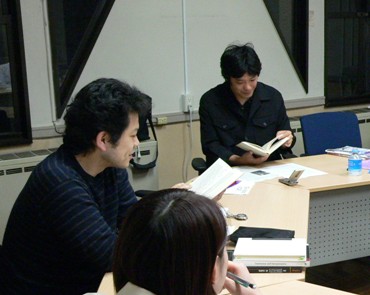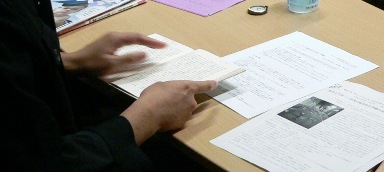The short-term program “Philosophy and University” has started !
In this posthumous book of Readings, who died at 34, we see an ambitious attempt to situate the relationship of philosophy to the university within the wide historical context. Bringing into relief the reciprocity of the history and the idea of the university, the author examines the shift from the modern university to the university of the age of globalization (post-historic university). His emphasis is on “culture” and he interprets the modern university’s role as forming the “national culture” for the modern state. In Germany through philosophy, in the Anglo-Saxon world through literature, a fixed historical identity was attributed to the national culture and was taught to the students as an appropriate education. The flourishing of Cultural Studies definitively changed the notion of culture and opened the university and the national culture to a great variety of contexts.
The originality of this book is the analysis of the notion of “excellence” as a driving force of the university in the era of globalization. “Excellence” is an empty notion without external referent or substance; therefore, it makes possible every kind of comparison of phenomena related to the university. “The point is not that nobody knows what excellence is, but that everybody has his own idea of what it is”. From the grades of the students, the size of the lectures, the quality of the teachers, the financial situation, the library collection, the social reputation of the graduates to the orderliness of the parking lot, everything could be evaluated under the name of excellence. This makes possible the classification and the ranking of the university and prompts the students’ consumerism towards the university.
During our discussion Readings’ point of view was interpreted as deriving from the Anglo-Saxon universities. In a globalization age the university is subordinated to an extent to the nation state and it must compete internationally for the strengthening of the national power. A tendency of reinforcing the link between the university and the nation state systems resisting to globalization (≒Americanization) could be also pointed out.
Natural Sciences, which examine the laws of natural phenomena are oriented to the universal. On the other hand, under the political, economic and cultural globalization, a theoretical construction from a broader perspective is imposed on the Social Sciences, which study the man-made constructions. The question is how should the Humanities act. In the Humanities, which investigate introspectively the spiritual activity of man, the task is to search for humanness in between the universality of nature and the globalization of society. This would be a different path from the (re)shaping of the national culture, as Humboldt envisioned at the threshold of modernity in the beginning of the 19th century.
In any case, Readings’ book can be appreciated for facing straight the craving of the Humanities in the age of globalization. However, comparing to the successful historical, social and historical analysis in the first half, the perspective he depicts in the second half seems forcible. The anti-modernist pedagogy, which does not assume independent subjects, introduced in “Chapter 10 The Site of Education” and the heteronomous horizon of non-consent, which accepts the diverse without the prerequisite of consent, introduced in “Chapter 12 The Community of dissensus” were both lacking in persuasiveness.
Nevertheless, his quest for belief, besides the theory of truth and practice, and the teleology of what do we study at the university, what will we become by going to the university, impressed me deeply. Without such a deep questioning of belief concerning the university it is not possible to think fundamentally about the present university and Humanities.
“What kind of belief will allow any belief to count for anything at all. What kind of blief will not simply become fodder for evaluation in terms of excellence ?”
(Original Report: Yuji Nishiyama, English translation: Dennitza Gabrakova)








